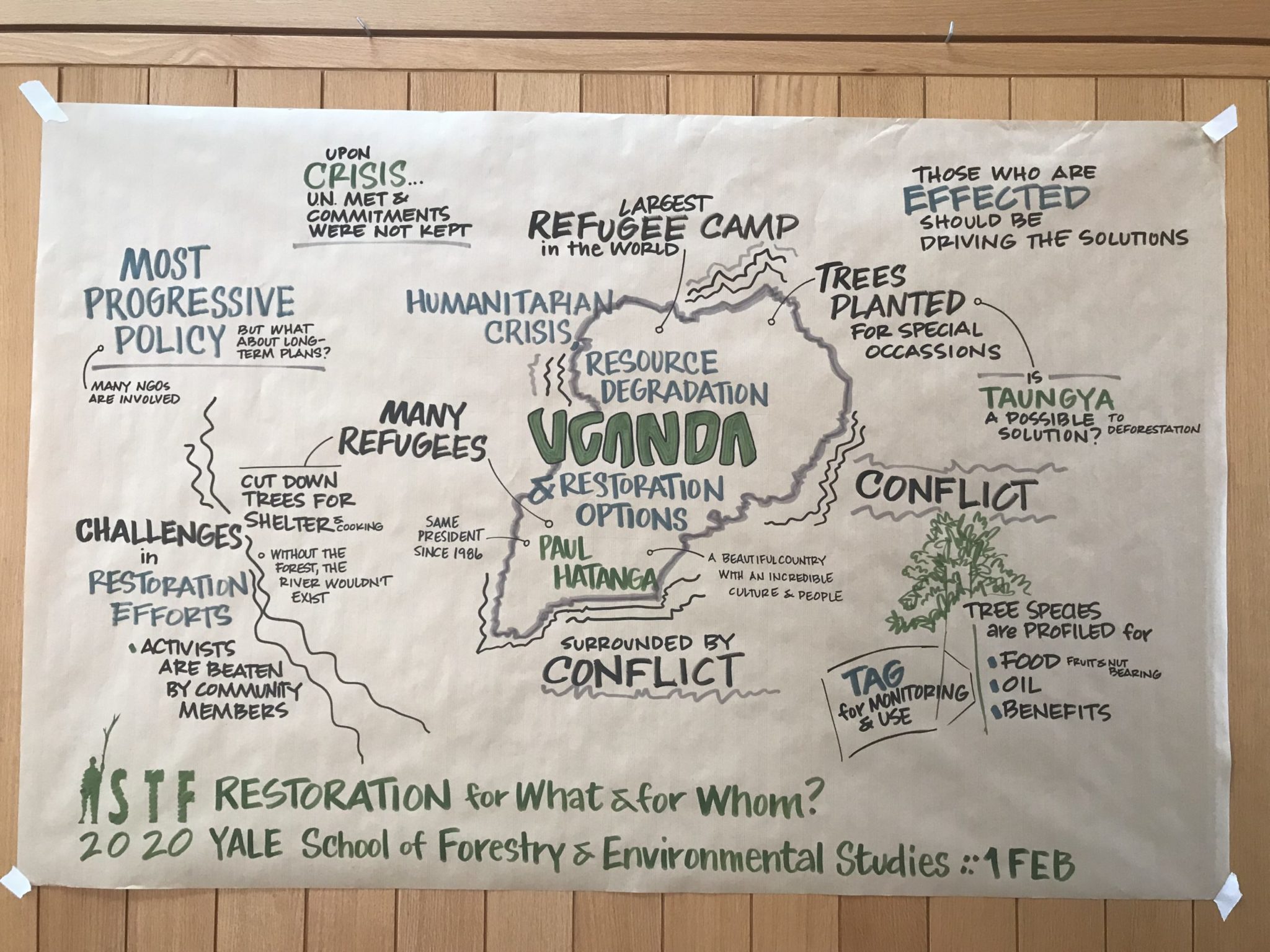
Khue Tran
“When we talk about climate change, biodiversity loss and desertification, we are talking about the symptoms of the insatiable quest for economic growth and the inequities that make people who contribute the least to these problems suffer the most,” said Susan Chomba during her keynote address to the International Society of Tropical Foresters Conference. “We must recognize that human beings are living in an interconnected world.”
The conference, which was held Thursday through Saturday at the Yale School of Forestry & Environmental Studies, was titled “Restoration for What and for Whom? Shifting the Paradigm in Tropical Forest Management.” The International Society of Tropical Foresters Conference is the longest running student-led conference at Yale University. Participants included academics, practitioners, policy-makers, activists, artists and journalists who all wished to explore equitable and effective approaches to ecological restoration at a “critical moment for tropical forests and their inhabitants,” according to conference co-chair Blanca Begert FES ’20.
The conference was organized by Yale’s student chapter of the International Society of Tropical Foresters, originally created as part of a network of natural resource professionals concerned with tropical resource management in 1989. The theme for this year’s conference focused on the need for rapid change to restore tropical ecosystems and create a more just society.
“We have been talking about wanting to have a conference with a strong environmental justice focus, and we decided to explore that in the context of tropical forest restoration and the impact that has on the ground,” said Begert, who is concentrating in environmental science at F&ES. “We wanted to center people who live in tropical forests and think about what assumptions are built into these goals [of ecological restoration] and who may lose out.”
The weekend’s conference explored approaches to restoration that “shift the paradigm of tropical land management such as showcasing projects led by and truly inclusive of those most affected by forest loss, concrete proposals that promoted ecological resilience and combat colonialism, compelling storytelling that confronts power and impacts policy and research that reflects on-the-ground needs,” according to the event’s invitation.
“We need to acknowledge our complicity in ecological degradation and the root causes at play,” said Rebecca Lave, a speaker at the event. “Concepts carry historical baggage with them. Our scientific findings are social and so are their impacts in the world.”
This year, the conference drew around 230 participants from 30 countries. Numerous journalists, ecologists, critical geographers, grassroots restoration practitioners and artists spoke on panels such as “Envisioning Critical Restoration Ecologies,” “Natural Regeneration Strategies in Forest Landscape Restoration” and “Highlighting Women’s Voices in Grassroots Restoration.”
Director of the Institute for Tropical Forestry Ariel Lugo, who delivered a keynote address before Chomba, emphasized the relationship between humans and nature in addressing the question of restoration of novel forests in Puerto Rico.
“Ecosystems do not move in one plane, but many directions,” Lugo said. “When you are restoring you may have to restore not to what you would like but to what the circumstances allow you to do.”
Yale’s ISTF chapter also offers an Innovation Prize at its annual conference to honor outstanding initiatives and ideas related to tropical forest use and conservation. This year’s winner was Beverly Mugure Gichiri for her work as the founder of Mugure Agriventures Limited in Kenya’s Kajiado County. At the conference, Gichiri said she believes that “there cannot be restoration or conservation if there are no women’s rights.”
Along the same lines, the conference also had an all-female panel, in which the panelists touched on their experiences working on the ground as women along with other gender-related challenges, such as how climate change exacerbates inequality for women. The panelists also talked about their dedication to inspiring other girls to work on projects that address climate change and promote sustainability.
“I found Rebecca Lave’s talk very impactful,” said conference co-chair Gabriela Morales-Nieves FES ’20. “She talked about how we use different ‘neutral’ terms that actually carry bias because ecology can be social. They can have different connotations that can carry with nature.”
The International Society of Tropical Foresters is located at 195 Prospect Street.
Khue Tran | khue.tran@yale.edu
Correction, Feb. 22: This article has also been updated to more accurately reflect quotes from Begert, Chomba and the conference’s invitation as well as the attendance at the event.
Clarification, March 2: A previous version of this article stated that there were multiple all-female panels of grassroots restoration practitioners at the event. While there were two all-female panels at the event, just one included grassroots restoration practitioners.







